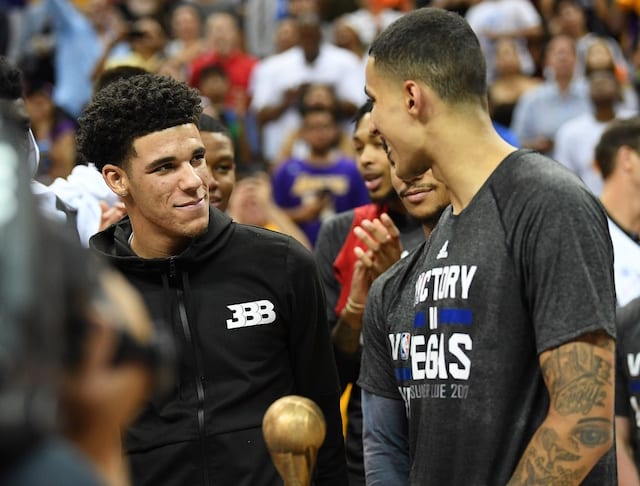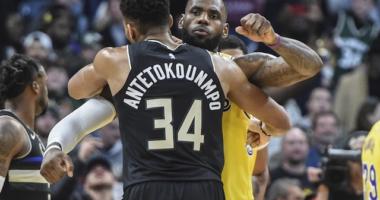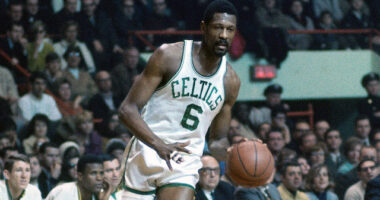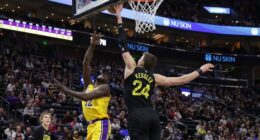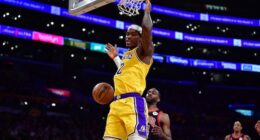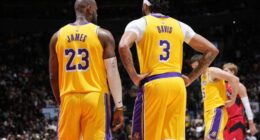Divac was not the typical center. While standing at 7’1″, he had a knack for ball control and playmaking. The addition of his jump shot made guarding him a difficult task. His mix of European and American-style approach to the game made Divac one of the premier players in the NBA during his days with the Lakers, the Hornets, and the Kings.
However, one of Divac’s biggest impacts on the Lakers wasn’t made on the court. A high school senior from Lower Merion had impressed then-Lakers’ GM Jerry West so much that he traded Divac to the Charlotte Hornets for their 13th pick of the 1996 Draft. That pick ended up being Kobe Bryant, who turned into one of the greatest Lakers of all time.
Once loved by the Lakers fans in the 1990s, Divac became an enemy of sorts when he joined division rivals the Sacramento Kings, in 1998. Some of the most thrilling games in Lakers history came out of the early 2000s match-ups against the Kings. However, Divac returned to purple and gold in the 2004-05 season to end his career where he started. Due to back problems, he only played in a total of 15 games, averaging only 8.7 minutes per game.*
Divac has had a credible post-career including: sports management of his former club KK Partizan, a European scout for the Lakers from 2005-2006, and with his various investments. However, his humanitarian work on behalf of his native country of Serbia and for Africa stands out during his post-NBA career. His humanitarian efforts have gained world recognition.
Divac is one of six players in NBA history to record 13,000 points, 9,000 rebounds, 3,000 assists and 1,500 blocked shots, along with Kareem Abdul-Jabbar, Tim Duncan, Shaquille O’Neal, Kevin Garnett and Hakeem Olajuwon.
He is currently the acting President for the Serbian Olympic Committee, which he was elected to in 2009 and has a four-year term. In March of 2009 the Sacramento Kings retired his #21 jersey. To complete the circle, Divac was inducted to the FIBA Hall of Fame in 2010.
*Source: Stats provided by ESPN.com
